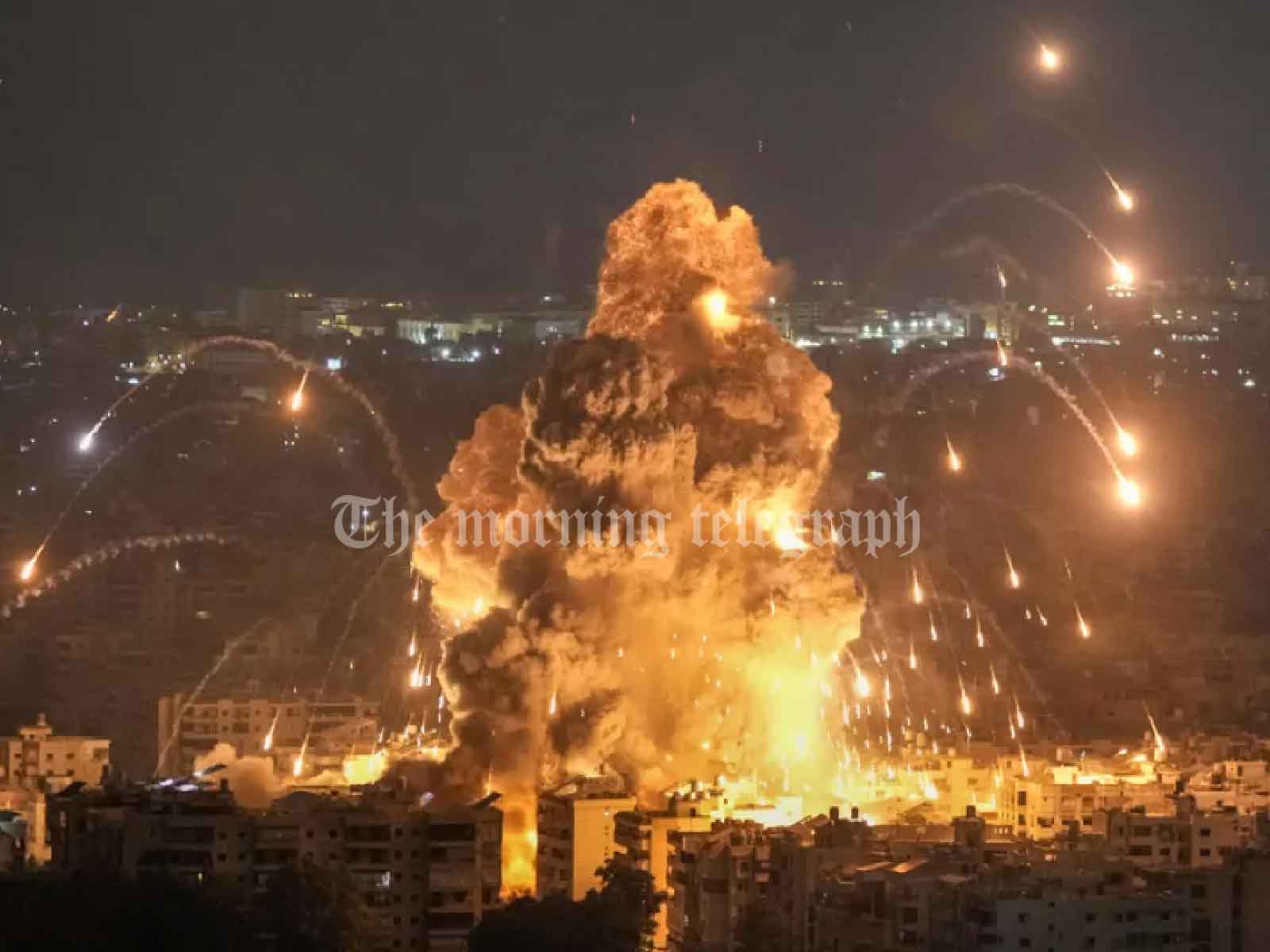
In a dramatic escalation of hostilities, Israel launched a series of airstrikes on Iran early Saturday, targeting military sites as a retaliatory measure for a barrage of ballistic missiles fired at Israel by the Islamic Republic earlier this month.
Explosions reverberated through Tehran, though Iranian officials claimed the strikes caused only “limited damage.” This marked a significant moment, as it is the first time Israel’s military has directly attacked Iran since the 1980s, heightening fears of an all-out war between the two adversaries.
The Israeli military stated that the airstrikes aimed to hit “missile manufacturing facilities” responsible for producing missiles launched at Israel over the past year, in addition to surface-to-air missile sites and other aerial capabilities. The full extent of the damage from these attacks remains unclear, as Israel offered no immediate damage assessment.
This aggressive move comes amid spiraling violence across the Middle East, where Iranian-backed militant groups such as Hamas in Gaza and Hezbollah in Lebanon are actively engaged in warfare against Israel. The strikes risk further entrenching the conflict and pushing the region closer to a wider war.
In a pre-recorded video statement, Rear Adm. Daniel Hagari, an Israeli military spokesperson, emphasized, “Like every other sovereign country, the state of Israel has the right and the duty to respond.” This rhetoric underscores Israel’s stance of acting in self-defense amid what it perceives as ongoing threats from Iran.
Iran’s military confirmed the strikes targeted military installations in several provinces, including Ilam, Khuzestan, and Tehran. However, state media downplayed the severity of the attacks, framing them as part of routine air defense activities, and reported that life in Tehran continued largely unaffected.
Amidst the rising tensions, the United States cautioned against further retaliation from Iran. A senior White House official indicated that the overnight strikes should mark the end of direct military exchanges between Israel and Iran, while warning Tehran of potential “consequences” should it respond aggressively.
The latest round of hostilities follows a pattern of military escalation between Israel and Iran. Earlier this month, Iran launched at least 180 missiles into Israel in what it claimed was retaliation for attacks that killed key Iranian and Hezbollah leaders. While the missile barrage sent Israelis into bomb shelters, it resulted in minimal damage and injuries.
This attack on Iran comes on the heels of significant military actions by Israel against Hezbollah, which has been firing rockets into northern Israel nearly daily since the onset of the current conflict. Israeli forces have engaged in ground operations in southern Lebanon, displacing over a million people and resulting in a rising death toll.
Iran’s response to the October 1 missile attack demonstrated its willingness to escalate tensions, leading to the airstrikes that occurred early Saturday. The backdrop of increased violence and military strikes raises questions about the stability of the entire region.
As the situation develops, both Israel and Iran remain on high alert, with the potential for further conflict looming. The Israeli government has vowed to continue targeting Iranian military capabilities as long as they are perceived as a threat.
The U.S. has played a critical role in diplomatic efforts aimed at de-escalating tensions, emphasizing Israel’s right to self-defense while also urging restraint to prevent further escalation of the conflict. Defense Secretary Lloyd Austin reaffirmed the U.S. commitment to Israel’s security, stating that the operation was “extensive, targeted, and precise.”
The long-standing animosity between Israel and Iran, marked by decades of proxy wars, assassination campaigns, and cyberattacks, has intensified with the current conflict in Gaza and the broader geopolitical landscape. Observers fear that the latest developments could spiral into a larger regional war, drawing in multiple actors and destabilizing the Middle East even further.




